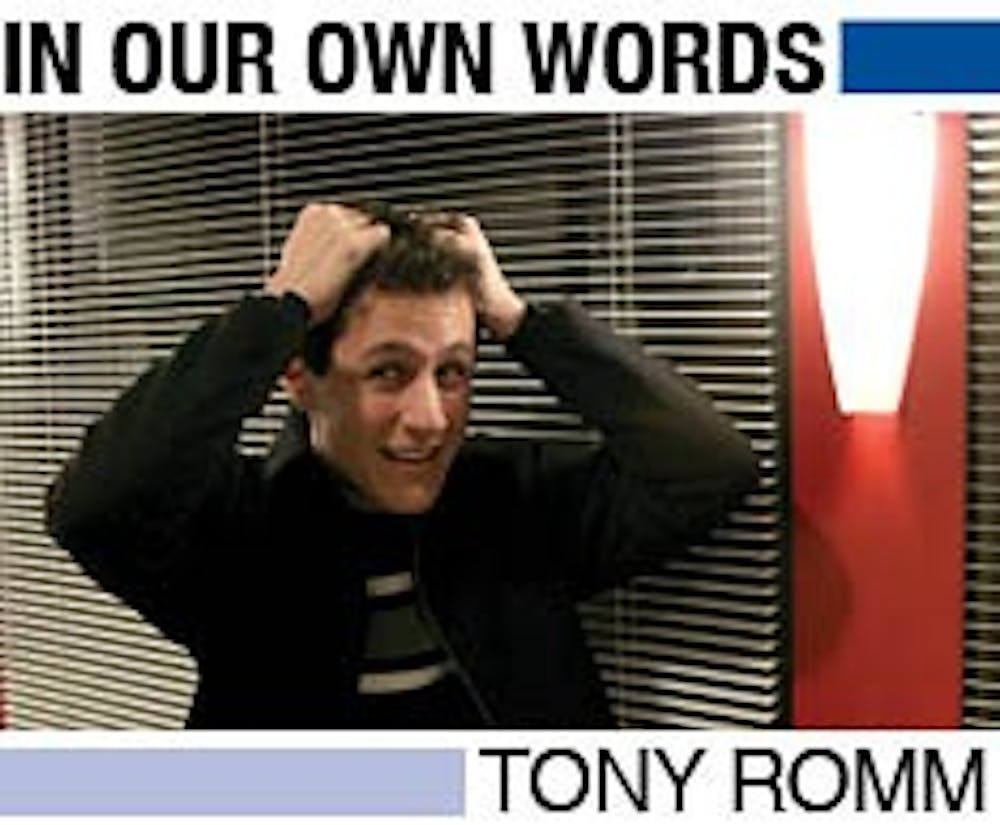"Obama bolts ahead of Clinton in new poll," read a New York Times headline two days before the seminal New Hampshire primary that "reaffirmed" the New York senator's status as front-runner.
"Fading in polls, Clinton vows to fight on," was The Washington Post's optimistic approach to the story.
Some of the less mainstream Web options, including the Huffington Post, adopted a more speculative tone: "What a Hillary Clinton Loss in New Hampshire Means for GOP Fundraising".
But Clinton didn't lose. "Media Blow It Again," admitted Howard Kurtz's Jan. 9 column, which examined the media's speculative content in the weeks leading up to the first primary. Kurtz's overdue conclusion: never again, and the rest of America's pundits-turned-apologists echoed his pre-Nevada decree.
With South Carolina fast approaching, will the media break their promise? Some networks and publications already have. CNN and the Congressional Black Caucus' Democratic debate this Monday was filled with subtle references to the media's polling mistakes in New Hampshire and what the numbers mean ahead of South Carolina. John Edwards took a separate beating on Sunday morning's "Face the Nation," answering questions regarding the viability of a campaign that seems destined to place a consistent third.
Indeed, many of the pundits who botched New Hampshire soon reverted to the strategy they renounced. And their continued reliance on faulty polls is certain to affect the all-important referendum best known as Super Tuesday.
But this is by no means a new development. Perhaps overstated, the media steer public discourse, and poll numbers are overwhelmingly influential. Undecided voters are more likely to assume that the candidate with the most favorable stats is, in fact, the best candidate for the job. Many Americans thus rely on polls to make decisions.
Such behavior would be fine if the media didn't routinely shirk their responsibility as the fourth estate. Of the countless debates since mid-2007, the candidates have spoken mostly without penalty - scrutiny seems reserved to the blogosphere (which, ironically, most mainstream media deride). Instead, networks and publications have played "horse-race journalism," sacrificing accuracy for some unseen advantage over the competition.
Consequently, the mistakes and misstatements dominate the election, a problem only compounded by polls. When The New York Times incorrectly accused former Mayor Rudy Giuliani of misusing funds for his security detail and then buried its correction, it dealt some damage to his poll numbers. And the media, which discussed Giuliani's resulting poll deficit more than they did his finances, very much contributed to the former mayor's decision to throw his weight behind Florida, one of the few states the polls predicted to be in his court. Now, as Florida's temperament shifts, Giuliani might be the '08 race's next victim of misinformation.
He'll join the ranks of Clinton and Sen. John McCain, both of whom can attribute their political trajectories to polling. Although the media predicted their demise - Clinton before New Hampshire and McCain as early as 2007 - both candidates are now reveling in their comeback narratives. Problematically, the candidates didn't "come back" because they never truly faltered. The media tried to pre-empt the story, then muffed it and capitalized on both candidates' unexpected wins. That's not real reporting.
So who really decides this election? We're certainly the ones at the polls, but one can only wonder how truly informed our opinions of the candidates are. To that degree, Kurtz was right: The media did blow it big time. But they will keep making those same mistakes unless they re-evaluate their role in this perennially important election. Skeptical voters don't need a poll to realize that.
Tony Romm is a junior in the School of Communication and the editorial page editor of The Eagle.





